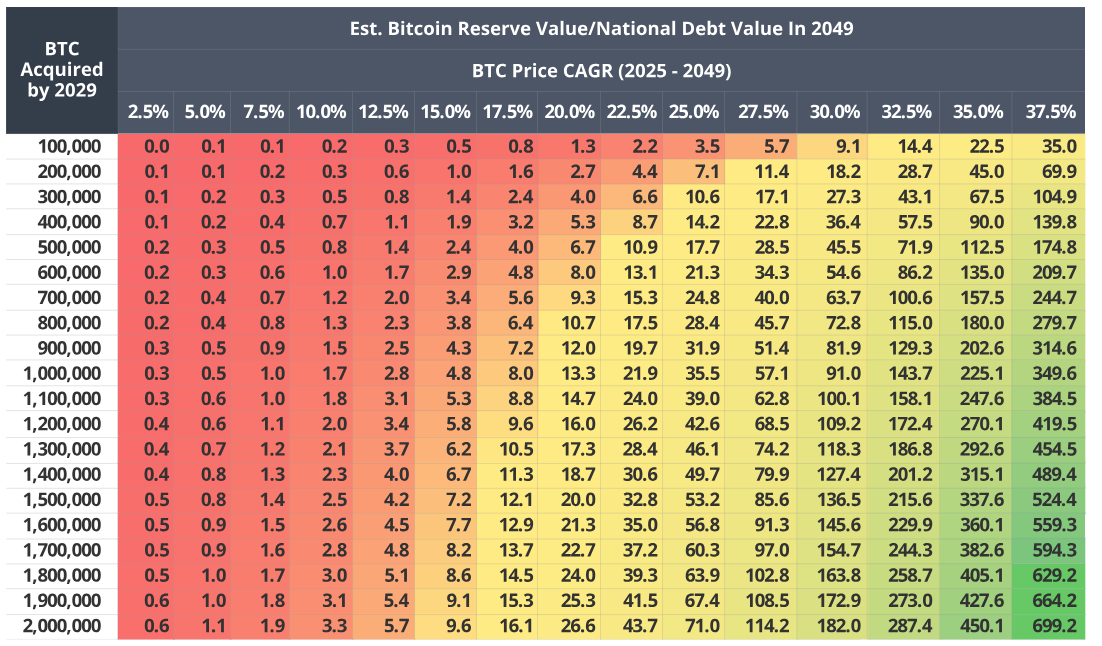VanEck, a leading asset management firm, recently forecast that the United States could significantly cut public debt by up to 36% by 2050 through the adoption of the Strategic Bitcoin Reserve.
The initiative is tied to the Bitcoin Act of Senator Cynthia Lummis, who calls for the United States to accumulate 1 million bitcoins within the next five years. Ms. Lummis said this reserve could help future generations have a more stable financial foundation, free from debt that they did not cause or benefit from.
How Bitcoin Reserves Could Transform US Debt Management by 2050
VanEck’s analysis supports this strategy, predicting that such investments could reduce the national debt by an estimated $42 trillion by 2049. This prediction assumes consistent debt growth of 5% and The annual bitcoin price increase rate is 25%.
In this scenario, Bitcoin’s value would skyrocket to more than $42 million, making it a significant force in global financial markets by 2049.
“Assuming current total global financial assets of $900 trillion grow at 7.0% from 2025 – 2049, Bitcoin would represent 18% of global financial assets in this scenario,” company adds.

Matthew Sigel, head of research at VanEck, emphasized Bitcoin’s potential role in reshaping the global financial landscape. He suggested that Bitcoin could become the leading settlement currency in international trade – providing an alternative to the USD – especially for countries wishing to avoid US sanctions.
“It is very likely that bitcoin will be widely used as a settlement currency for global trade by countries that want to avoid a sharp increase in USD sanctions already in place,” Sigel write.
To kick-start this ambitious project, VanEck recommends a number of initial measures, including a moratorium on Bitcoin sales from US post-foreclosure reserves.
Furthermore, they suggested that some adjustments could be made under the new administration of President Donald Trump, such as revaluing gold certificates at current market prices and using the Exchange Stabilization Fund to make initial Bitcoin purchases.
Indeed, these steps could help establish reserves quickly without waiting for broad legislative approval.
However, this proposal has been met with some skepticism. Venture capitalist Nic Carter has questioned whether Bitcoin reserves can actually underpin the USD. Meanwhile, Peter Schiff proposed an alternative to create a new digital currency called USAcoin.
“The United States could save a lot of money by creating USAcoin. Like Bitcoin, the supply could be limited to 21 million, but with an upgraded blockchain making USAcoin truly viable for use in payments,” Schiff propose.
